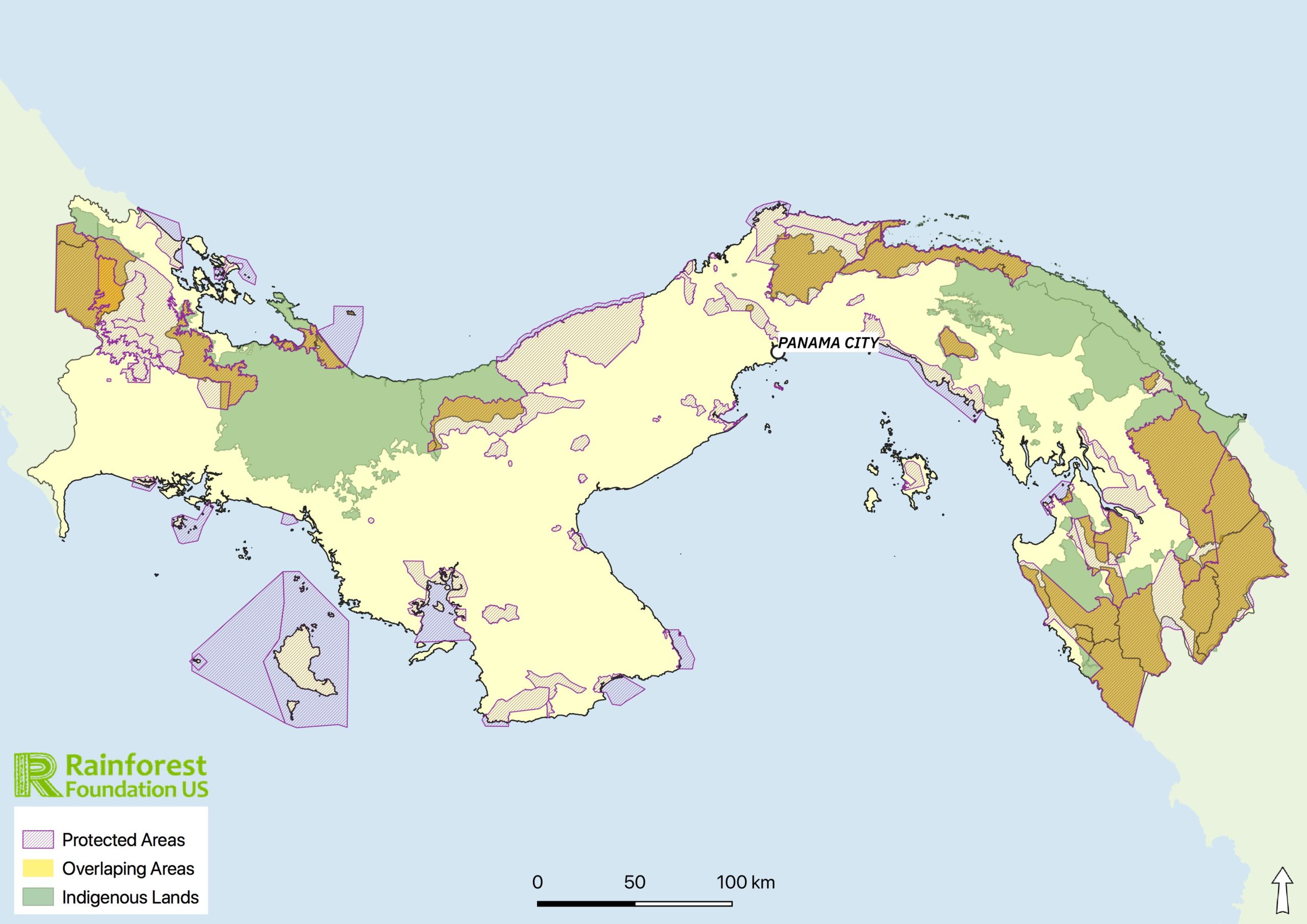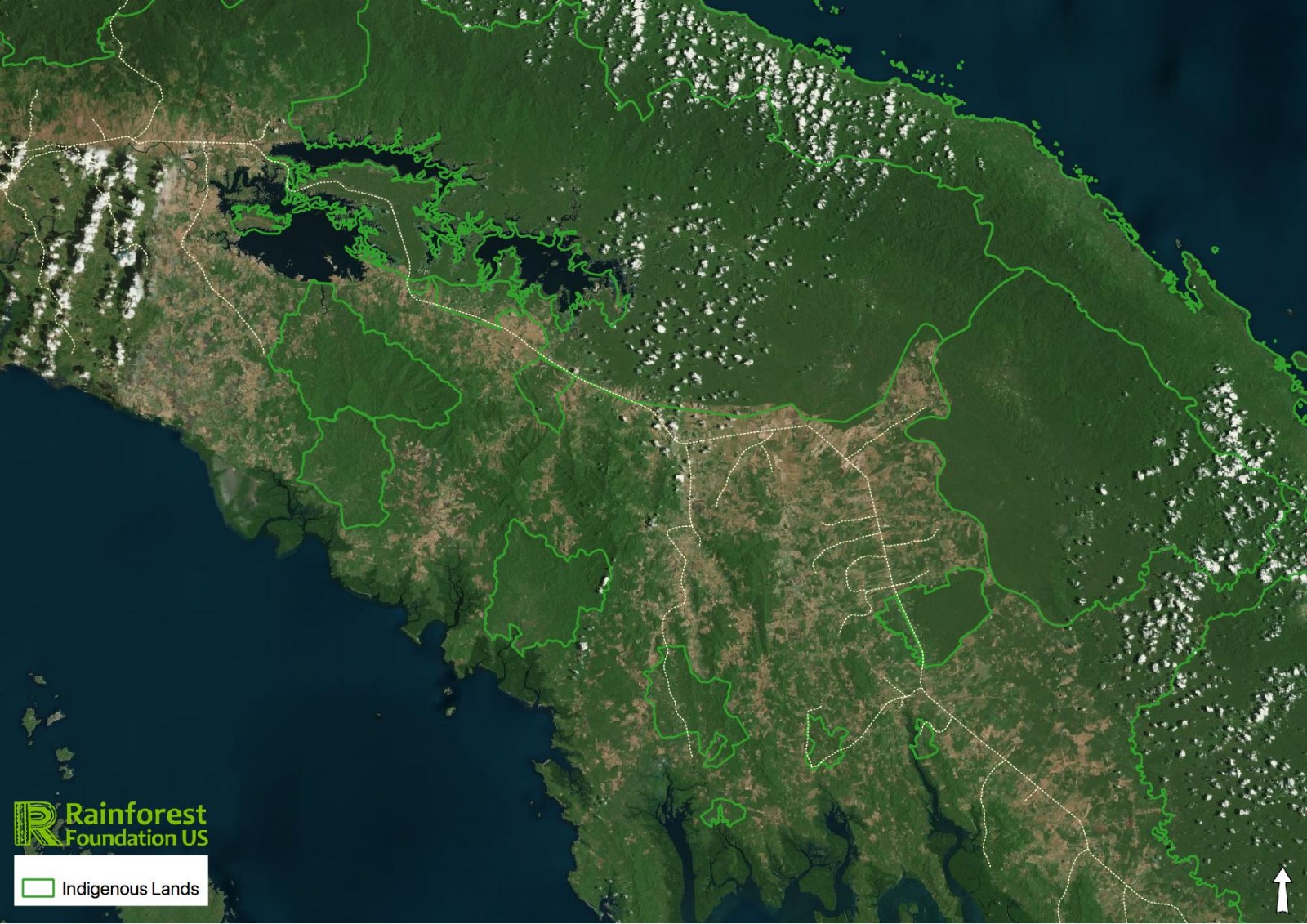
Victory
In November 2019, Panama’s Ministry of Environment took a massive step forward for human rights and the environment by recognizing indigenous peoples’ land rights within protected areas.
After a negotiation process lasting more than two years, the government of Panama issued on a legal resolution clearing the way for the titling of indigenous peoples’ lands overlapping protected areas. This is good news for indigenous peoples’ rights and the environment, as indigenous peoples’ lands in Panama are among the best protected in the country.
The legal memo is a momentous victory for Panama’s indigenous people who live outside of the formal comarca system, whose land tenure demands have been denied for decades. Most of the remaining untitled indigenous peoples’ lands in Panama overlap either the protected area system or other sensitive habitats (coastal wetlands, primary forest) that are also protected under Panamanian law and not subject to individual land titling.
This legal limbo for collective lands has constituted the single greatest obstacle to advancing land tenure security in Panama over many years.
Now, with the legal obstacles removed, some twenty-five territories can be titled. This includes the lands of the Naso people whose traditional territory occupies the La Amistad International Park (PILA) and the Guna of Tagargunyal, who live almost entirely within Darien National Park (PND), Central America’s largest protected area and one of the largest remaining stretches of pristine forest in the region.

Additional Implications
The ruling is also important because of its scope, which covers indigenous peoples aspiring to gain collective land titles as well as groups that wish to establish a new comarca, such as the Naso people of northern Panama.
The ruling is also significant for its references to international law, which firmly establishes the positive obligation of states to title and demarcate the lands that have traditionally been used and occupied by indigenous peoples. The Ministry of Environment has firmly recognized these obligations, the primacy of international law over national law, and the need for the state to clarify and reform national laws when they conflict with international obligations.
The ruling is also a big victory for forest conservation in Panama, as land tenure security for the indigenous people who have stewarded these forests for centuries is undoubtedly the best hope for their long-term protection against conversion to farmland or cattle ranches, or concession for logging, mining or palm oil.
Now the hard work of finalizing territorial maps, reaching agreements with neighbors and third parties occupying indigenous lands, and negotiating agreements to co-manage or collaboratively manage protected areas can begin in earnest.
Rainforest Foundation US’s Contribution
Our staff has been on the ground in Panama for years mapping with communities, developing land use plans and supporting the negotiation process with the government. We have supported key partners, including the National Coordination of Indigenous Peoples of Panama (COONAPIP), the Embera and Wounaan Collective Land Congress (CGTCEW), the Wounaan Peoples National Congress (CNPW) and the Ancestral Congress of the Guna of Tagargunyal (CGTATT). Rainforest Foundation US has also provided staff and advocacy support to our key partners and financed the legal work needed to achieve this important victory in conjunction with the Tenure Facility.
Informational Flier on Ministerial Resolution 0612-2019 (in Spanish)



